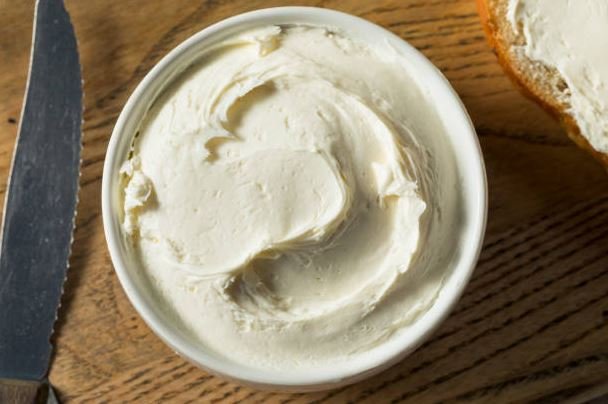You just couldn’t resist, could you? The smell, the sight, the juicy, flavourful, ready-to-eat rotisserie chicken at your local store. It’s like a Siren song for your stomach, and you’ve answered the call. Now you’re back at home, belly content, but a sizeable chunk of chicken remains.
You scratch your head and ponder, “How long does this rotisserie chicken last in the fridge?” Well, my friend, you’re about to embark on a ‘fowl’ journey of discovery (pun intended).
How Long Does Rotisserie Chicken Last in the Refrigerator?
So you’ve overestimated your appetite, and now have a partly-eaten rotisserie chicken. Don’t start clucking with worry just yet. If stored correctly, your leftover chicken can still be enjoyed for a few more days. The USDA says cooked chicken, rotisserie included, can last 3-4 days in the fridge.
It’s important to remember that this estimation is based on the chicken being refrigerated within two hours of cooking or purchase. For those who think time is chicken feed, beware. Leaving your bird out for too long at room temperature can invite those unwanted bacterial guests.
Can I Keep Rotisserie Chicken in the Fridge for a Week?
Like any cooked meat, rotisserie chicken is susceptible to bacterial growth and spoilage. The longer it sits in the fridge, the higher the risk of bacterial contamination and the loss of its quality. Generally, it is best to consume rotisserie chicken within 3-4 days of purchase or preparation.
If you have excess rotisserie chicken that you won’t be able to consume within a few days, it’s recommended to freeze it. Freezing can help extend its lifespan to 3-4 months while preserving its quality. Before freezing, ensure the chicken has cooled completely, and wrap it tightly in freezer-safe packaging to prevent freezer burn.
What Is the Shelf Life of a Store-Bought Rotisserie Chicken?
Here’s a not-so-fun fact: Store-bought rotisserie chickens are older than you might think. They’re usually cooked earlier in the day and kept warm for hours, ticking away the clock on their freshness.
Nevertheless, once you get them home and pop them in the fridge, the USDA’s 3-4 day rule still applies. So, next time you’re at the store, remember, it’s not just about finding the juiciest chicken, but also the freshest. It’s like ‘chicken dating’ – age and freshness matter.
How Can I Tell if Rotisserie Chicken Has Gone Bad?
- Visual inspection: Start by visually inspecting the rotisserie chicken. Look for any changes in color or texture. If the chicken appears discolored, with gray, green, or yellow patches, it’s a clear indication of spoilage. Additionally, if there are any visible mold spots or an unpleasant slimy film on the surface, it’s best to avoid consuming it.
- Smell test: Next, give the chicken a whiff. Fresh rotisserie chicken should have a pleasant aroma. However, if you notice a strong, foul odor resembling sulfur or ammonia, it’s a strong sign that the chicken has gone bad. Trust your sense of smell, as it can often indicate spoilage.
- Texture and consistency: Rotisserie chicken should have a moist and tender texture. It could indicate spoilage if you notice a dry, rubbery, or excessively slimy texture. Additionally, if the chicken feels unusually soft or mushy, it’s best to discard it.
- Expiration date: Check the expiration date on the packaging or label of the rotisserie chicken. While it’s not a foolproof method, it gives you a general idea of its freshness. If the chicken is past its expiration date, it’s safer to err on the side of caution and avoid consuming it.
- Trust your instincts: Trust your instincts. If something doesn’t seem right about the rotisserie chicken’s appearance, smell, or texture, it’s better to be safe than sorry. Consuming spoiled chicken can lead to foodborne illnesses and unpleasant symptoms.
Is It Safe to Eat Leftover Rotisserie Chicken?
Leftovers – some see it as a next-day delight, others as a fridge space occupier. Rotisserie chicken can be a glorious return of the clucking good meal if done right. You should be ready if you refrigerate your chicken within the two-hour window and heat it properly before eating.
Remember, the chicken should be steaming hot throughout to kill potential bacteria. So yes, leftover rotisserie chicken can be safe; it’s not just some poultry tale.
Can I Freeze Rotisserie Chicken for Later Use?
Yes, indeed. Your freezer is like the fountain of youth for your rotisserie chicken. It can be safely frozen for up to four months. Just make sure you pack it properly in airtight containers or heavy-duty freezer bags to prevent freezer burn.
So, next time you have a surplus of rotisserie chicken, don’t have a “fowl” mood; freeze it.
How Long Does Frozen Rotisserie Chicken Last?
Frozen rotisserie chicken is like the superhero version of your regular chicken – it lasts longer. According to the USDA, properly stored will maintain the best quality for about four months but remain safe.
However, the quality might degrade the longer it stays in the freezer. So, it’s a bit like the Superman of chickens – even frozen; it can come back to save your meal.
What Are the Best Storage Practices to Extend the Lifespan of Rotisserie Chicken?
Preserving your rotisserie chicken’s shelf life isn’t rocket science, but a few best practices can help. Refrigerate the chicken within two hours of cooking or purchasing it, and store it in shallow containers for quicker cooling. If freezing, pack tightly in airtight containers or freezer bags.
When reheating, ensure the chicken steals hot throughout to kill any lurking bacteria. Remember, storing your chicken correctly isn’t just a poultry matter – it’s essential for your safety and satisfaction.
How Long Does Rotisserie Chicken Last in the Fridge?
Rotisserie chicken typically lasts 3 to 4 days in the fridge. To maximize its shelf life, store the chicken in a tightly sealed container or wrap it tightly in aluminum foil or plastic wrap.
Ensure the fridge temperature is below 40°F (4°C) to prevent bacterial growth. If you’re uncertain about the chicken’s freshness, perform a visual and smell test.
Conclusion
Rotisserie chicken can be a delightful addition to any meal with its juicy, tender meat and crispy skin. Knowing its shelf life, understanding signs of spoilage, and learning proper storage techniques can ensure you enjoy every last bite.
So, next time you bring home a rotisserie chicken, remember these tips. It’ll be like giving your chicken a second cluck at life.



















